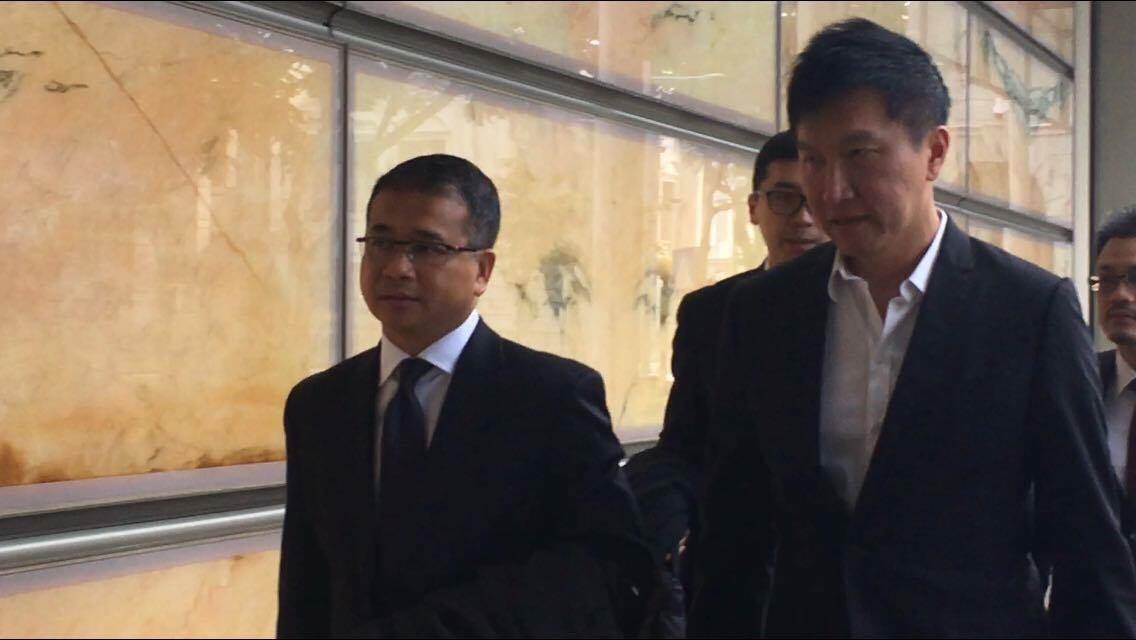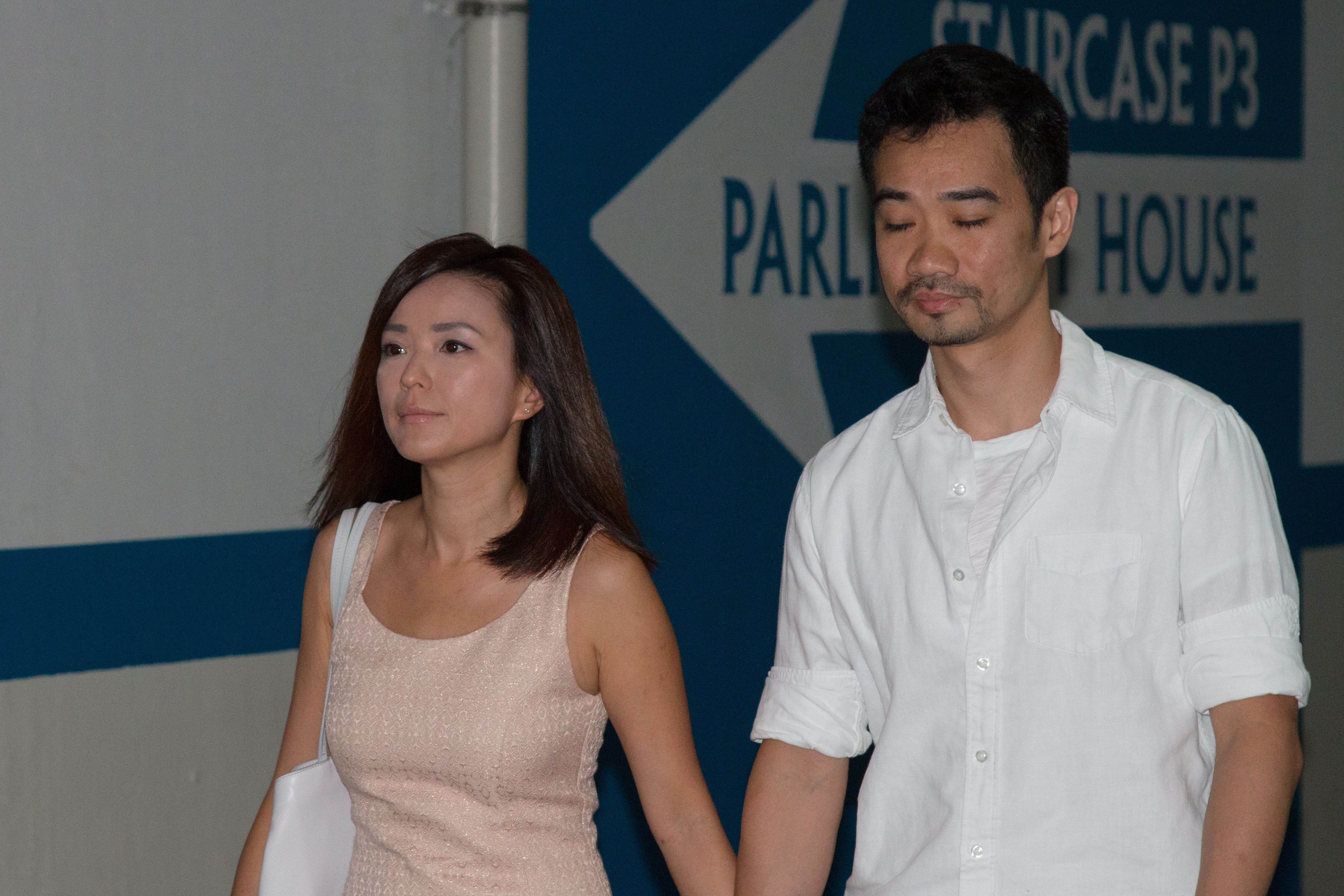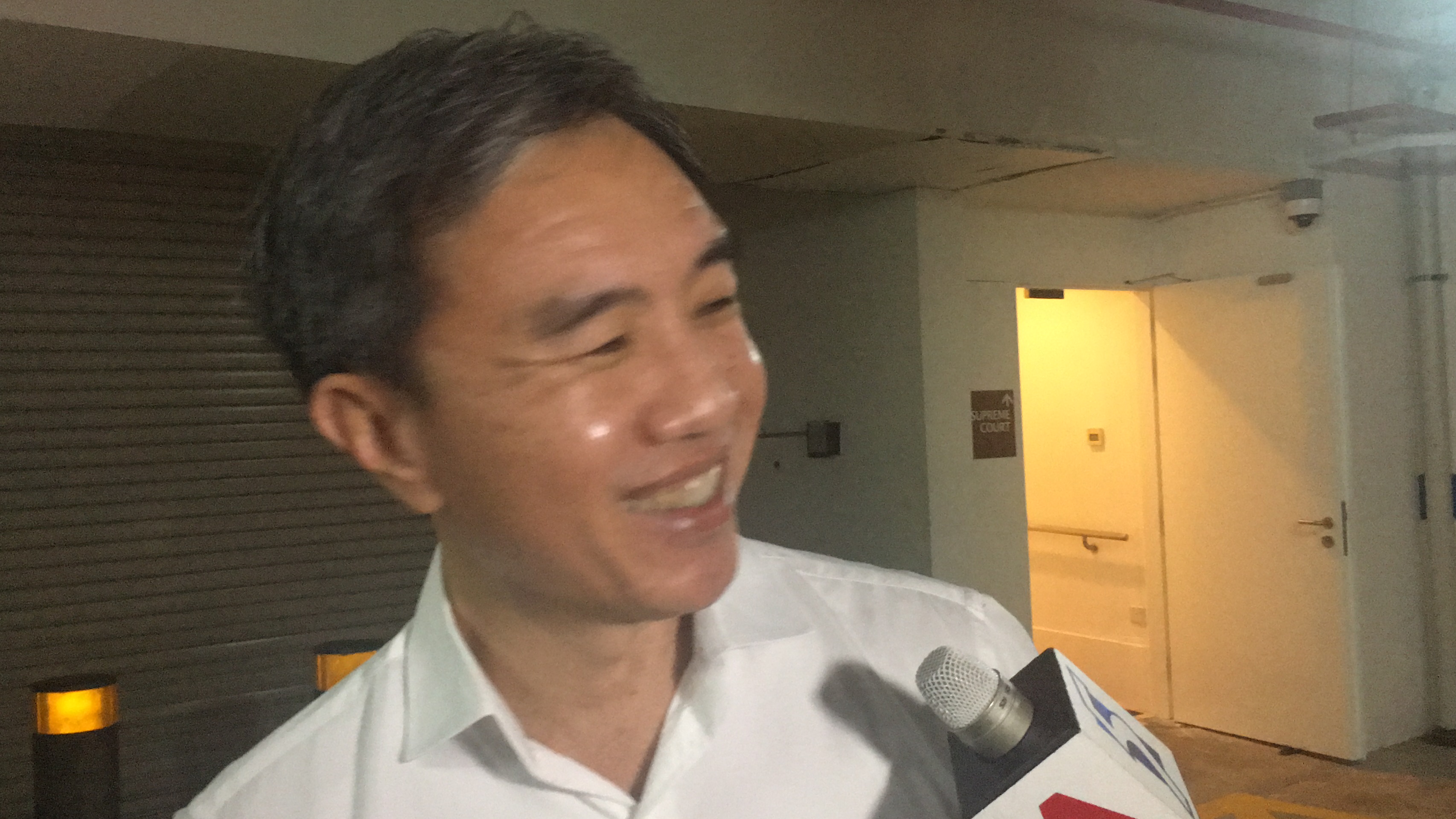You know the most important facts: The six City Harvest convicts are still convicts, but the High Court reduced their jail sentences, which are slated, for all except Sharon Tan, to begin on April 21 (two weeks' time).
Pending the submission of questions of public interest to the Court of Appeal on the part of any of them, of course.
In a 13-page oral judgement delivered on Friday morning to a packed courtroom, with more than 50 others milling outside hoping to catch a glimpse of what was going on inside, two of the three-man panel of High Court judges decided they weren't convinced by the case made by prosecutors in their appeal to increase the jail sentences for them.
These extracts from it, which we try to break down for you, will help to explain where the two of them, at least, were coming from:
1. The appeal, for the 3 judges, turned on the following two Criminal Breach of Trust statutes:
- Section 406 of the Penal Code, which reads:
 Screenshot from statutes.agc.gov.sg
Screenshot from statutes.agc.gov.sg
This, if you notice, carries up to seven years' imprisonment for a criminal convicted of this.
- and section 409 of the Penal Code, which reads:
 Screenshot from statutes.agc.gov.sg
Screenshot from statutes.agc.gov.sg
This comes with a heavier sentence of up to 20 years' jail. It also happens to be the one the State Court judge initially convicted the six church leaders of.
For them to be found guilty of breaching Section 409, instead of 406, the following five requirements must be shown:
(a) First, the relevant appellants (namely, Kong Hee, Tan Ye Peng and John Lam) were entrusted with dominion over CHC’s funds.
(b) Second, this entrustment was in the way of Kong Hee, Tan Ye Peng and John Lam’s business as agents.
(c) Third, monies from CHC’s funds were misappropriated for various unauthorised purposes in pursuance of a conspiracy to misuse CHC’s funds.
(d) Fourth, the appellants abetted each other by engaging in the above conspiracy to misuse CHC’s funds; and
(e) Fifth, the appellants acted dishonestly in doing so.
On this, two out of the three, Judge of Appeal Chao Hick Tin and High Court Justice Woo Bih Li felt the second item in the list was not adequately shown by prosecutors.
After studying the wording of the law, as well as the relationship the six leaders and City Harvest Church had with each other, Justices Chao and Woo defined the term "agent" to refer to an external party to the organisation — in other words, and simply put, Section 409 would have applied to the six convicts if they were not themselves also part of the church.
Judge of Appeal Chao said State Court Presiding Judge See Kee Oon convicted the six leaders to Section 409 because he was bound to do so by a precedent case that reached the High Court, where at that time, it was determined that a director who misappropriates property owned by the company they are entrusted with are to be held liable under that section.
Unlike Presiding Judge See, though, Judge of Appeal Chao said they were not bound by that precedent.
2. Account falsification charges: CHC leaders' appeals dismissed
Turning to the charges relating to account falsification, all three judges agreed with Presiding Judge See's decision at the State Court level:
"We find that the entries were made in CHC’s accounts and were false, that the relevant appellants abetted each other by engaging in a conspiracy to make the false entries in CHC’s accounts, and that in engaging in the conspiracy, the appellants were aware that the entries were false and possessed an intention to defraud. We therefore affirm the Judge’s conviction of Tan Ye Peng, Sharon Tan, Chew Eng Han and Serina Wee on the account falsification charges. Accordingly, we dismiss the appeals of these four appellants against their convictions on these charges."
So, in terms of conviction, the only change made is the reduction of the severity of Criminal Breach of Trust — from Section 409 to Section 406.
3. The judges identified key factors that worked in favour of the six convicts:
- The six leaders did not receive any personal gain from this;
- They acted in what they believed were the best interests of the church (i.e. doing this would allow them to advance the church's interests through evangelisation, via the Crossover project);
- The Crossover project was also generally endorsed by the body of the church. While it didn't gain 100 per cent support, and also in some cases, not all facts were provided in order to gain the church's support, DESPITE THIS, "a substantial proportion of CHC's membership continued to support the mission of the Crossover even after the full facts surrounding the CBT charges were brought to light".
The judges also felt the case should not be viewed as a sinister and malicious attempt on the part of the six to strip the church of funds for their own purposes.
4. Here are some aggravating factors working against them:
The six resorted to deceit and lies in order to conceal the fact that building funds were used to pay for the Crossover project, out of fear that questions would be asked. These included:
- inflating Sun Ho's success;
- keeping the true nature of the transactions from the church, its board, the church's lawyers, and even their auditors;
- presenting a misleading picture of what was going on to church members even while a Commercial Affairs Department investigation was going on.
5. But here's where it's important — why their sentences are so short even though the amount involved is the largest in Singapore's history:
"But, at the same time, the appellants’ various non-disclosures take on a different character when underscored by the overarching theme that they were acting in what they genuinely believed to be in CHC’s interests. Whether this may in fact be so is a matter open for debate, but what is crucial is that this was their belief.
Thus, despite the fact that a large amount of funds from CHC was misappropriated, which would ordinarily have attracted a sentence at the higher end of the sentencing spectrum, we would allow for a significant discount given the exceptional mitigating factors in the present case. None of the appellants, particularly Chew Eng Han, Tan Ye Peng, John Lam, Serina Wee and Sharon Tan, could be said to have gained anything from what they did other than pursuing the objects of CHC.
Indeed, it is not the Prosecution’s case that any of the appellants could be said to have benefited financially from their offences. Their fault lies in adopting the wrong means."
6. And here, the judges point out where prosecutors may have faltered:
"We also note that the Prosecution had not focused on any gain to third parties for its case on conviction and sentence, even though this may have been suggested in the charges (especially the sham investment charges). While the Prosecution did, in its oral submissions before us, attempt to make the point that a benefit had accrued to Kong Hee’s wife, Sun Ho, this point was not raised in its written submissions for the appeal and was also not raised before the Judge. In the circumstances, we approach the sentencing in this case as one without any element of wrongful gain or personal financial benefit, either direct or indirect."
 Photo by Zheng Zhangxin
Photo by Zheng Zhangxin
7. Here are the Judges' comments on each of the six and their roles in the case:
- Kong Hee
"Kong Hee’s overall culpability and criminality are the greatest of the appellants. Kong Hee was the ultimate leader both of the Crossover and the appellants and it was he who provided the appellants with the overall direction and moral assurance for their actions. He was also the one who instilled the appellants with the confidence in the mission of the Crossover and Sun Ho’s ability to be successful in the U.S.
While we accept that Kong Hee neither directed nor participated in the conspiracy to redeem the bonds, it cannot escape our notice that the round-tripping transactions would not have been necessary if the Xtron and Firna bonds had never been entered into in the first place.
It is clear from the circumstances of this case that Kong Hee was one of the main players – if not the main player – who had set things in motion in relation to the sham investment charges where he had directed and influenced the other appellants, in particular (Chew) Eng Han, to come up with plans when increased funding for the Crossover was needed.
Kong Hee’s role as the spiritual leader of the other appellants, and the breach of trust vis-à-vis not just CHC but also the other appellants whom he led and mentored, ought to be reflected in the sentences imposed."
- Chew Eng Han
 Photo by Chiew Teng
Photo by Chiew Teng
"As for Eng Han, we find that he employed his wits and financial expertise to mask the reality of the transactions. Although he was not a spiritual leader of CHC, he was trusted when it came to financial matters. His sentences for the sham investment charges should thus only be slightly lower than Kong Hee’s. He was also the mastermind behind the round-tripping transactions and was the most culpable of the appellants who were charged for the round- tripping charges and account falsification charges."
- Tan Ye Peng
"Like Kong Hee, Ye Peng was a spiritual leader in CHC though the trust and authority reposed in him by CHC’s members was not as great as those reposed in Kong Hee. That said, we note that he was not the main mastermind behind the sham investment charges or the round-tripping charges. Therefore, his sentences should be slightly lower than the sentences imposed on Kong Hee for the sham investment charges and on Eng Han for the round-tripping charges and the account falsification charges."
- Serina Wee
 Photo by Chiew Teng
Photo by Chiew Teng
"Unlike Kong Hee and Ye Peng, Serina was not a spiritual leader of the church. While she was the administrator of the Crossover and helped out with the accounts and the documentation, she is less culpable than Eng Han as she did not devise the illicit bonds or the round-tripping transactions."
- John Lam
 Photo by Jeanette Tan
Photo by Jeanette Tan
"In our judgment, the culpability of John Lam, who was involved to a relatively limited (though important) extent and only at some junctures, is lower than that of Serina, Eng Han and Ye Peng. He was also involved only in the Xtron and Firna bond transactions and played no role in the round-tripping transactions."
- Sharon Tan
"We note that Sharon was at no point a leader of CHC, the Crossover or the illegal transactions. For this reason, we agree with Sharon that her culpability in respect of the round-tripping and the account falsification charges should not be pegged to that of Ye Peng. While she may have been more directly involved in the round-tripping transactions than he was, the fact remains that she was only an employee, and was merely carrying out the decisions and instructions of the decision-makers in CHC. Therefore, in respect of both categories of charges, we sentence her to a considerably lower sentence than the other appellants."
And that's why they got what they did.
Here are some slightly unrelated but nonetheless interesting articles:
We lost track of the number of times people think lifelong learning is an old people thing
Bet you’ve used these excuses at least once when your parents said ‘Go do something with your life’
More coverage on the outcome of the City Harvest appeal:
City Harvest Church issues statement on appeal: ‘We thank God for the shorter sentences’
Kong Hee could be out of jail in 2 years 4 months due to S’pore’s two-third remission system
Internet reacts with outrage & disillusionment to reduced sentences for 6 CHC Kongvicts
All 6 City Harvest Church leaders get reduced sentences
City Harvest Church leaders’ case appeal: The verdict
Top photo by Chiew Teng
If you like what you read, follow us on Facebook and Twitter to get the latest updates.
If you like what you read, follow us on Facebook, Instagram, Twitter and Telegram to get the latest updates.
